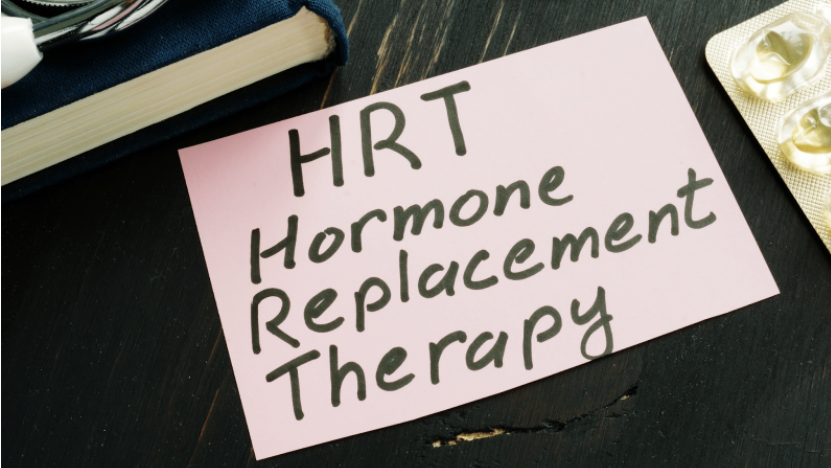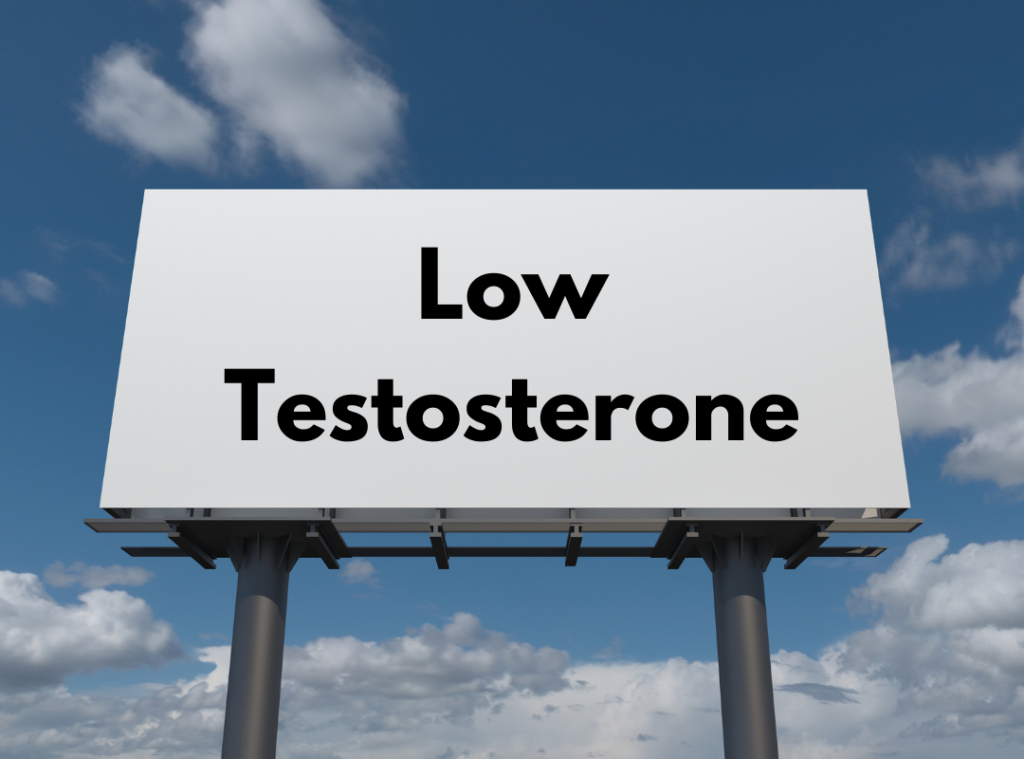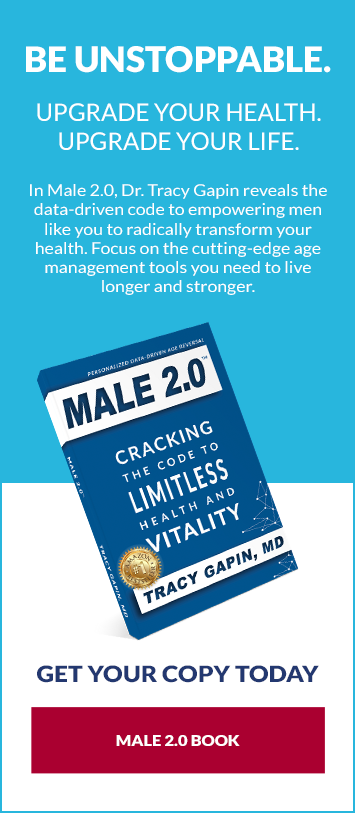
If you’ve navigated the last two years and you’re still in one piece, kudos to you. Sometimes it feels like an episode straight out of Black Mirror with the ongoing pandemic and our ever-changing social, political, and economic climates. Men, in particular, have been losing some of their energy and vitality, chalking it up to stress. While stress is a catalyst for many of life’s ailments, some men experience symptoms caused by low hormone levels, including low testosterone. In most cases, Hormone Replacement Therapy (HRT) can help. Hormone Replacement Therapy is one of the most pressing topics raised by middle-aged men with their doctors since 40% over 45 may have low ‘T.’
Understanding testosterone
Testosterone is a hormone, a chemical that governs the function of a particular part of the body. There are several other hormones in a man’s body, but this one gets the most attention. Testosterone is produced in the testes in special cells called Leydig cells. Once it is made, it gets transported through the bloodstream to get to work.
Most testosterone is bound to proteins such as albumin and sex hormone-binding globulin (SHBG). The bound testosterone is generally ineffective since it can’t get into the cell to do its job. The rest is called free or bioavailable testosterone and is associated with qualities such as:
- Increasing your muscle mass
- Developing longer, stronger bones
- General mood
- Your sex drive and sexual performance
- Estrogen creation (yes, guys need estrogen too)
- Red blood cell production and many others.
The hypothalamus and anterior pituitary glands regulate testosterone. Should there be a disturbance in this delicate cycle, the result could be low testosterone.
Don’t give testosterone all the credit (or blame)
Testosterone gets discussed ad nauseam, but other vital hormones can impact your body and its overall health. These hormones include:
- Luteinizing Hormone (LH) signals testicles to make testosterone. Low LH can cause subfertility and other signs of low testosterone.
- Follicle Stimulating Hormones (FSH) signal sperm production, and abnormal levels lower sperm production, signaling a pituitary gland abnormality.
- Some testosterone is converted into estrogen. High (and sometimes low) estrogen levels in men cause similar symptoms of low testosterone.
- Growth hormone (also called HGH) is a peptide that’s crucial for protein synthesis. In adults, it helps manage insulin, muscle growth, cholesterol, and even brain health.
- DHEA (Dehydroepiandrosterone) is a hormone your body produces in small amounts from cholesterol. Low DHEA levels can cause low testosterone, poor sexual function, and a host of related symptoms.
- Prolactin is the hormone that helps women produce milk. In men, it is necessary for small amounts for proper LH production.
- Vitamin D is not a vitamin, rather a hormone that involves the liver and is produced by the kidneys. This hormone is important for bone health, immune health, and depression by balancing serotonin and dopamine.
- Insulin manages metabolic processes, particularly blood sugar. Poor insulin production leads to conditions like diabetes and obesity.
- Oxytocin helps with emotions like trust, sexual interest, and stress reduction. For men, this hormone also plays a part in sperm mobility.
- Melatonin impacts our sleep cycle and tells us it’s time to sleep by lowering body temperature and triggering relaxation.
- Cortisol is known as the stress hormone but its functions include reducing inflammation, regulating metabolism and insulin.
Because all of these hormones work in concert, like a symphony, you need to look beyond just testosterone. You should dive deep with a comprehensive hormone review to determine your individualized needs.
I saw the sign…

Since low testosterone can affect so many human systems, the signs can sometimes be subtle at first. It’s quite common for men to visit their primary care doctor for a health issue, and the doctor simply addresses the symptoms rather than dive deeper to identify the underlying cause. In many cases, the underlying issue is a hormone imbalance. Here are some signs that should raise red flags and send you to get your hormone levels checked.
1. Low libido
Our libido is our general desire in sexual activity. It waxes and wanes with the circumstances we’re going through at the time. However, if our testosterone levels are acceptable, we’ll generally want to get it on more often than not. Low libido is a sustained lack of interest in sex, to the point where we have little to no sexual thoughts or fantasies. If it’s happening to the degree where you or your partner notices it or affects your quality of life, you may have a hormone imbalance.
2. No more morning erections
Our hormone levels are at their highest when we wake up. This spike, along with the relaxed nature of sleep and vivid dreams, makes us wake up with “morning wood.” As we age, the frequency of morning erections naturally declines. However, if you have noticed a sharp decline or a complete loss of morning erections, you should check your T.
3. Erectile dysfunction (ED)
It’s normal to have occasional issues with erection from time to time. Men aren’t wired to be always ‘turned on,’ but most of the time, we should be ready when it’s time for action. Erectile dysfunction is when a man consistently cannot get or maintain a sufficient erection for intercourse sex. When we are ready to go, we expect everything to be in working order. Testosterone is vital for sexual energy, but also plays a key part in nitric oxide production, which improves penile blood flow and is needed for healthy erectile function. So although low T is typically not the cause of ED, it can definitely make things worse.
4. Fatigue
Testosterone is one of the hormones that support your metabolism and overall energy. It’s also crucial for optimal performance during exercise or other physical activities. Men with lower levels of testosterone often tend to feel tired in the middle of the day or after even light activity. Men with low T also often complain of brain fog or difficulty focusing. Don’t chalk up your fatigue to age or a stressful day. There could be more at play.
5. Dry skin
Androgens like testosterone help create sebum, which is the skin’s natural oil. It’s also one of the reasons we get acne when we hit puberty. A testosterone spike means more sebum, which can clog our pores. The result? Lots and lots of acne. The opposite can happen when we begin losing testosterone. A reduction in sebum leads to dry skin, eczema, and worsening signs of psoriasis. You may visit your dermatologist thinking the issue is unrelated to your hormones, but HRT may be the answer.
6. Excess fat around the midsection (and possibly metabolic syndrome)
Men with low testosterone are likely to have extra belly fat. Since testosterone promotes metabolism and fat burning, a reduction in T levels can slowly turn your midsection into a pear shape. Truncal obesity is also a sign of metabolic syndrome, a cluster of conditions associated with elevated triglycerides, diabetes, obesity, and increased risk for cardiovascular disease.
7. Decreased muscle mass and bone mass
Testosterone is crucial for muscle growth and bone production. When we lift weights, our muscle fibers break down. To achieve muscle growth, we need new muscle cells and proteins to repair the damage. Testosterone helps with this process, since our muscle cells have androgen receptors. It binds to these receptors and heads to the cells responsible for tissue growth and protein synthesis.. The testosterone interacts with nuclear receptors in DNA to produce more proteins and cells that are responsible for muscle growth.
For our bone mass, estrogen is one of the key regulators as it helps with both bone turnover and bone mineral density. Testosterone is converted to estradiol for bone maintenance. It also interacts with hormone receptors to encourage red blood cell production within the bones. Men with low testosterone are at risk of fractures. . If we do not see results after training or lose muscle mass rather than gaining, it’s time to visit our doctor.
8. Depression and altered mood
There’s a common misconception that depression means down in the dumps and prolonged sadness. Like many psychological conditions, depression can happen on a spectrum. Maybe you’re like Gene in The Emoji Movie – you’re just ‘Meh.’ Researchers have been unable to pin down the exact correlation. Some believe it’s a causality of other symptoms like low energy, weight gain, and poor sex drive. Others have noticed a direct relationship between testosterone and dopamine, as it may impact brain chemistry and the brain’s mood centers. If you’re unable to produce sufficient testosterone, your ‘feel-good’ hormones dopamine and serotonin may decrease. Low dopamine and serotonin levels can bring on depressive symptoms. If you’ve been experiencing mood swings or more signs of ambivalence, it could be testosterone-related.
9. A heart attack or stroke
You read that right. Several studies demonstrate a common finding – that men with low testosterone are more likely to develop cardiovascular disease and have a 30% increased risk of having a heart attack or stroke. It’s clear that optimal hormone levels have a strong cardioprotective effect.
Why we’re losing our ‘T.’
There is a direct relationship between our lifestyle and our testosterone levels. I’ve talked extensively about endocrine disruptors and environmental toxins like BPAs, pesticides, and phthalates that affect your testosterone production. These, along with obesity, poor sleep, and dietary deficiencies can negatively impact your testosterone.
A pro-inflammatory diet ( filled with processed carbs, sodas, and processed meats) can severely impact testosterone production. Millions of men also have micronutrient deficiencies, lacking the vitamins and minerals necessary for optimal health.
Some studies show that one week of inadequate sleep significantly reduces our testosterone, and the more sleep we lose, the worse it gets. Other reasons include smoking and excess alcohol consumption.
Get a checkup ASAP
Are you a candidate for Hormone Replacement Therapy (HRT)?
Get your hormone levels checked. If your levels are low, you may benefit from HRT. This includes not just testosterone, but also thyroid hormone, DHEA, Vitamin D, and others. While you should always focus on a healthy lifestyle including clean nutrition, regular activity, and good sleep, hormone replacement therapy may be necessary.
Don’t ignore the signs.
As men, it’s in our nature to figure things out on our own. This is why we sometimes wait too long to get help for our health issues. The earlier you confront it, the quicker you can optimize your quality of life. In most cases, it’s not your fault you’re having a decline in hormone production. There are so many environmental and lifestyle stressors today that can crush our hormone levels. However, it is your responsibility to take action when you see signs.
Hormone Replacement Therapy will bring some immediate results, but it can take several months to see the desired changes. For most men, the treatment can be long-term with symptoms returning if you stop your therapy.
Despite its effectiveness, men should not rely on hormone therapies alone. HRT should be combined with lifestyle changes, like a healthy diet, exercise, proper sleep, and reducing exposure to environmental toxins.
If the signs you need Hormone Replacement Therapy are becoming more apparent, book a call or consultation today. We’ll do a comprehensive review of your blood and health and determine if this treatment is right for you.




